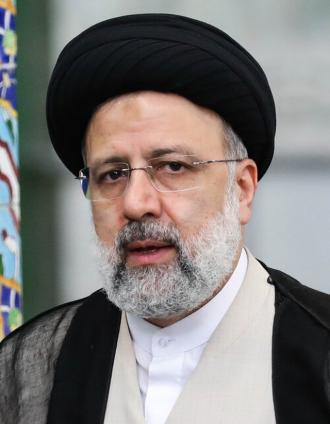Zacharia Wallerstein gazed out the window of his seventh-grade classroom window and watched, fascinated, as a handful of butterflies flitted in the warm, summer air. Turning his attention back to his yeshiva classroom, he raised his hand. “Rebbi,” he wanted to know, “why has God created the miracle process by which the homely caterpillar metamorphoses into a magnificent butterfly?” (Mishpacha Issue 910 - May11, 2022)
The rebbi’s annoyed response did not deter Zecharia from running off to the local library to study, “…everything there was to know about how a caterpillar morphs into a butterfly.”
Over the course of his too short life, the butterfly became for Rabbi Zecharia Wallerstein a fascinating study, a symbol and a proof of God’s grace. From that fascinated young boy he became one of this generation’s most creative, caring, and generous educators – mashpiim, a model – of all that a living being is capable of. As Eytan Kobre wrote beautifully in is his Mishpacha piece (May 11, 2022), “…the natural world is brimming with miracles, but the transmutation of caterpillar into butterfly is in a class of its own. It conveys a singular message of unlimited possibility and potential…” Everything is possible in Hashem’s world, everything. As Rabbi Wallerstein taught, no matter how plain, rough, or ugly your beginnings, you have within you the potential to become a magnificent butterfly. This lesson, taught with unlimited caring, love and perseverance, guided thousands of struggling, confused, and abused young women to stand tall and proud; indeed, to fly.
Trina Paulus asked, “How does one become a butterfly?” and then answered her question, “You have to want to learn to fly so much that you are willing to give up being a caterpillar.” That very lesson was the one Rabbi Wallerstein taught through Ohr Naava, his multi-faceted institution. Unsurprisingly, the Center has a butterfly logo and the motto, “It’s all about change.”
It is all about change, all about that point in your life when you want to fly so badly that you’re ready to cast aside the burden of being a caterpillar.
The metamorphosis to butterfly demands the desire and willingness to fly, to be independent, to leave behind a way of being that was limiting.
Parshat Bechukotai opens with the blessings that await Am Yisrael if the people determine that they are willing to leave behind who they were and live according to their covenant with God, proving themselves worthy of God’s esteem and bounty. But then we hear the frightening tochacha, the account of the punishment and pain that await us when we destroy that covenant.
Im bechukotai telechu – If you will follow my decrees….
While this phrase would normally refer to the observance of mitzvos, Rashi notes that due to redundancy in the posuk, (“…and observe My commandments”) it must then be referring to study of Torah. Curiously, the verb telechu, used here to refer to Torah study, generally denotes “going” or travelling from one place to another. With this understanding, the Ohr HaChaim posits what this then has to do with Torah study and then responds to the question that even when travelling one’s mind should be Torah-oriented, a lesson most emphatically stated in the Sh’ma, “…teach them to your children, while on your way.”
Yet here at the beginning of Bechukotai, telechu seems to convey more than another reminder to focus on Torah. Not generally a verb that has anything to do with studying or learning, telechu conveys the ability to go forward on one’s own, to be able to move on.
How often do our young students, our budding talmidei chachomim, graduate from our schools and then, confronted with a world outside the safe, supportive environments of their yeshivas and beis midrash, – go their own way? This one to college, that one to the business world, another to… where? The wide world with all its charms and allures. Our bright, accomplished students… one no longer observing Shabbat, another compromising on kashruth, another behaving as though shul is a foreign, forgotten country.
What happened? Were we wrong to see them as bright and promising, fully immersed in Torah culture? What happened that they proved unable to make it on their own as observant Jews, to stand on their own two feet? In short, they lack telechu. Without support, they cannot help but weaken and falter.
Im bechukotai telechu.
No, telechu is not simply another reminder to remain focused on Torah learning. It exhorts us to go! All the Torah learning in yeshiva amounts to little if you are not able to go forth and make it on your own. Unless our yeshivot and rebbeim truly prepare our students to be successful and committed Jews in the real world, unless they prepare our students to metamorphosize into beautiful, individual Jews just as a caterpillar transforms into a beautiful butterfly, then they fall short.
R’ Yaakov Neiman in his Darchei Mussar relates a parable originally heard from R’ Nochum Ziv, the son of the Alter of Kelm. In it, a group of men sat and dined together. When the meal concluded, all the men rose to leave. All, that is, but one. The others faced the man who remained seated. Why did he not get up from his chair? To their shock, they realized the man had no legs. He could not stand. When they were seated, he had appeared just like them. Only when they stood to leave and go their own way was it clear that he could not, like them, simply go.
R’ Yaakov taught that Torah must be our “supporting legs”, especially when we venture each on his own, away from the safety and comfort of our support system. Torah is not only for when we are part of the larger group, when one is safely in his cocoon, but for when one is on his own. It is not enough to “walk the walk” when there are eyes upon you. It is also for when you are on your own…
Perhaps what is called for is a consideration of a different kind of preparation when you are still in the “cocoon”. Perhaps rather than an additional blat Gemarah what is called for is more hashkafa, mussar, chassidus, Navi, and biographies of Tzadikim; perhaps what is called for includes the basics of Jewish emunah, beliefs, and a more practical application of it to the world outside of the beis midrash.
Our young yeshiva graduates, boys and girls, are begging for answers! They sense the challenges outside the cocoon. In chat rooms they give voice to their anxiety. “So, I just graduated...and am seriously freaking out. 12 years in the same school, with people guiding me and telling me what to do every step of the way. How can they expect me to immediately jump into the real world? Will I be able to adjust to life outside of school, where I am responsible for my every action? I seriously don’t feel I am prepared!” Or this comment, “I have to say I am somewhat confused. Isn’t the very job of your high school and its staff to prepare you for life on your own? If you feel inadequately prepared, I would think that your teachers need to reevaluate what they are teaching. They need to stop spoon feeding their students and teach them to think for themselves in the proper way.”
Im bechukotai telechu.
It works. Just ask the thousands who’ve passed through Rabbi Wallerstein’s programs. They graduated a “butterfly” curriculum, one that guided them in their metamorphosis! They graduated to fly not fail!
Im bechukotai telechu.
Ohr HaChaim, in his commentary, adds “a sixteenth reason”, one that suggests that telechu may be connected to the teaching in Berachot 14, “…a person must not set out on a journey until he had studied some words of Torah.” He goes further to cite the Zohar, “…if people engage in a journey together without exchanging words of Torah between them, they are endangering their lives.”
As we have noted, this is not another exhortation to be engaged in Torah learning. Rather, Ohr HaChaim reminds us that when we embark on our worldly paths in the marketplace, in universities, in the secular city, along the streets and avenues of life, if we do so without girding ourselves with Torah, we are indeed endangering our lives.
To leave the cocoon, a butterfly must be ready to fly. To telechu, a Jew must be taught and prepared to stand as a Jew. Educators and rebbeim who do not nurture their students and prepare them for the world before them do not fully honor their calling.














